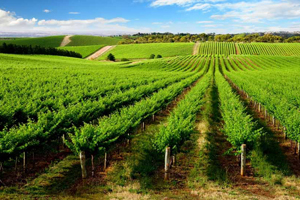Retailer companies operating in the European fresh fruit and vegetable sector gathered in 1997 to establish certain standards in order to guarantee that the agricultural products and foodstuffs offered to consumers are of a certain standard and they have put forward the requirement of compliance with these standards in their purchases. Then, with the work of the Technical and Standards Committee they established, they determined the principles of certification regarding the principles and standards determined.
GLOBALGAP protocolAlthough it generally covers different agricultural products, it is most commonly applied in fruit and vegetable production. These works started like a civil society movement in Germany and spread to the whole world in a short time. Because the largest market in the purchase of fresh fruits and vegetables is the European Union countries and the import transactions of these countries GLOBALGAP Certificate is required as a mandatory document. The leading fruit and vegetable importers in Europe require GLOBALGAP Certificate for the products they purchase. It is an important advantage for manufacturers in countries that sell agricultural products to the European Union.
In addition to the Good Agricultural Practices standards, third countries also make the necessary legal arrangements to comply with this protocol. In this context, the Ministry of Food, Agriculture and Livestock in our country 2004 İImplementing Regulation on Good Agricultural Practices It has been omitted. This regulation aims at agricultural production that does not harm the environment, human and animal health. In addition, it has introduced regulations for the protection of natural resources and for monitoring and sustaining agricultural activities. The objective of this application is to introduce reliable agricultural products to the market.
Producer companies wishing to have GLOBALGAP Certificate, if they are going to produce in accordance with GLOBALGAP standards, they should first register with a certification body. Certification bodyIf they are convinced that the application meets the necessary conditions after they have made the necessary controls and recorded the necessary processes, they will issue a GLOBALGAP Certificate and deliver it.
The GLOBALGAP System complies with the following principles and standards regarding food safety:
· Based on HACCP Hazard Analysis and Critical Control Points System standards.
· It also complies with the principles of integrated struggle. Integrated control is also known as Integrated Pest Management (IPM) or Integrated Pest Control (IPC). In short, it can be expressed as a pest control system.
· It is also based on the principles of Integrated Plant Breeding (ICM).
In this way, the GLOBALGAP System is a set of principles that considers the people, the environment, the rights of the workers working in production and the earnings of the producer organizations.
Transparency and traceability are the most important conditions in GLOBALGAP applications. All the processes starting from the preparation of the soil to be planted until all stages of production and delivery to the consumer are under control and every activity is recorded.
The TÜRCERT certification body also carries out agricultural product certification studies. Organizations that require more information about the GLOBALGAP System or wish to obtain a GLOBALGAP Certificate should not waste time applying to the experienced managers and employees of the TÜRCERT certification body.



